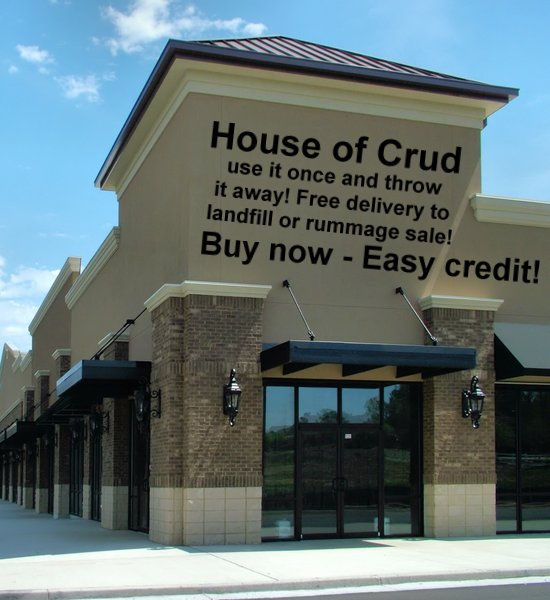Consumerism is a simulacrum of real economic agency.
The more capital you have, the greater your power to influence or change your circumstances. The less capital one has, the less power one has to influence the world around us. This is why money equals power: cash enables the purchase of all sorts of extensions of agency: transport, education, assistance, expertise and so on.There is perhaps no better metric of class in America than personal power–what is known as agency: the power to influence or transform one’s circumstances in a a self-directed manner. Those with agency have power, those without agency (or very limited agency) are essentially powerless.
But cash isn’t the only form of capital that can be drawn upon to generate agency: credit is almost as good as cash, if one can borrow the money at near-zero rates of interest. The intellectual/social capital implicit in entrepreneurial agency is not financial, but it empowers those who possess it in ways that cash or credit alone cannot.
If we add these tangible and intangible forms of capital up, we get a taxonomy of agency/power: those with little capital or credit, and little intellectual/social capital to draw upon for agency are powerless in an economy and society where everything has a price and everything is for sale to the highest bidder.
Those with financial capital, access to low-cost credit and reserves of intellectual/social capital that can be transformed into entrepreneurial agency have economic agency.
This taxonomy explains why those who are financially impoverished but rich in entrepreneurial values, skills and social connections are not powerless, despite being poor. For those with economic agency, opportunities abound–especially in new fields that have not yet been locked down by monopolies, such as blockchain technologies.
This taxonomy helps explain why so much of the middle class is a few paychecks away from dropping out of the middle class: those with access to credit enabled by paid work, but little reserves of the sort of intellectual/social capital required to tap the opportunities in the emerging economy, find their agency vanishes once they lose their job and the access to credit it enabled.
The difficulty many now face is the skills that were once a form of valuable intellectual capital have been depreciated by software/AI, automation and globalization’s vast labor pool. The market value of any one particular skill is contingent and thus vulnerable to technological advances or changes in the supply and demand of that skill.
The entrepreneurial/social forms of capital that I describe in my book Get a Job, Build a Real Career and Defy a Bewildering Economy are broader and more flexible; these are the higher-level forms of capital that enable an individual to learn a new skill and develop a new set of connections (social capital) as circumstances change.
Individuals with little economic or political agency are offered one default form of agency: consumerism. If one has enough cash or credit to become a customer, this agency of consumption is experienced as a form of power, even if the sum available to spend is small.
This is one of the attractions of dollar stores; the low prices enable those with little money to experience the agency of consumption: $5 enables the consumer to select five items to buy, and this power to choose is like an oasis of agency in a desert of economic and political powerlessness.
Even $1 is enough to become a customer, which in a consumer-based economy manifests a specific commercial-transaction type of power: the clerk must endeavor to meet the customer’s requests and treat every customer with a respect they might not receive outside a consumer-customer setting.
No wonder consuming/buying is so intoxicating/addictive: it is a readily accessible manifestation of agency in an economy in which true economic agency is scarce. Experiencing one’s relative powerlessness is intrinsically debilitating, and so we naturally seek some experience of agency, however modest and fleeting.
The downside of consumerism is two-fold: consuming as a manifestation of agency is inherently superficial; the “high” of selecting and buying stuff is fleeting, and the churn of consumption–one must constantly be shopping and buying to maintain the sense of agency–reduces the capital available to pursue true economic agency.
The other downside is this superficial and fleeting consumerist agency fuels a landfill economy in which low-quality goods are purchased on credit for the brief “high” and then discarded in the landfill shortly thereafter, freeing up space for the purchase of more stuff: Our Landfill Economy.
Eventually, individuals with little real economic agency run out of credit, and their ability to consume more collapses. The “solution” to this inevitable decline in creditworthiness is 0% financing and similar financial gimmickry that extends and pretends the illusion of endless credit-based consumption.
Meanwhile, the planet is being stripmined to fabricate and transport all the stuff that’s purchased and dumped in the Landfill Economy.
Consumerism is a simulacrum of real economic agency. It’s a psychological balm for political and economic powerlessness, but it is no substitute for the ownership of capital that enables true economic agency.
30Aug
Personal Property and Consumerism

